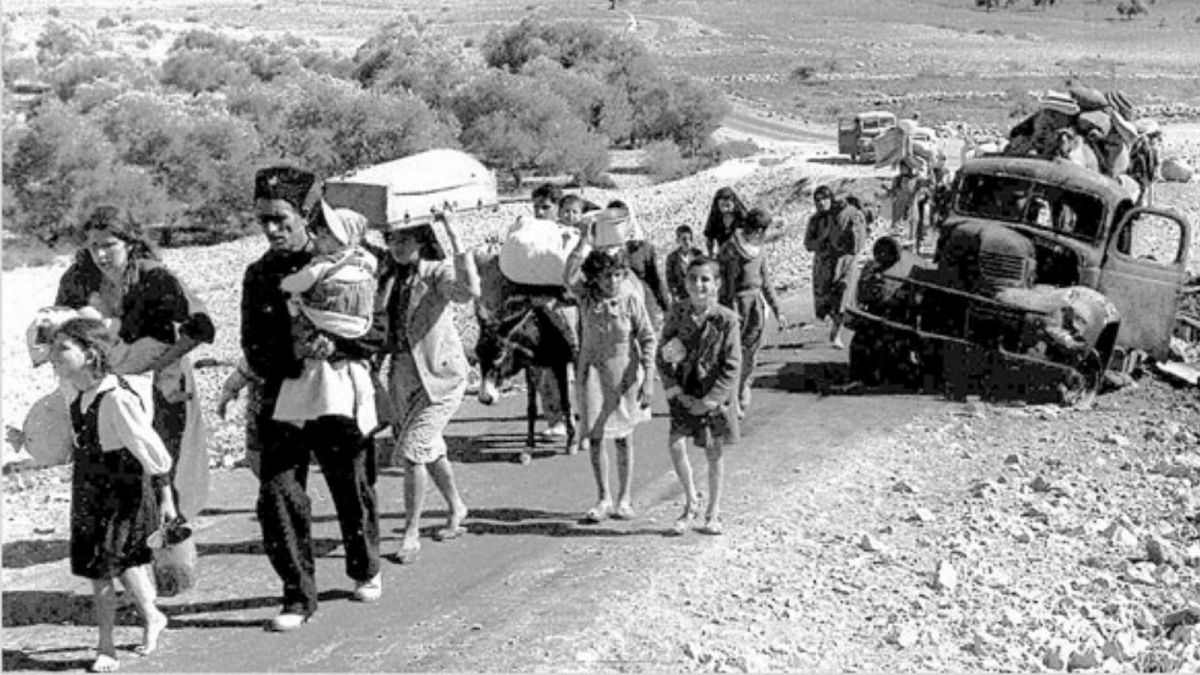The deadly violence on the Gaza border on Monday — the bloodiest in years — has its roots in the Nakba, which happened 70 years ago today.
What is the Nakba?
The deadly violence on the Gaza border on Monday — the bloodiest in years — has its roots in events 70 years ago.
When the state of Israel was established, it prompted the departure of around 750,000 Palestinians.
This mass exodus on May 15, 1948, is referred to by Palestinians as the Nakba or, more colloquially, the Catastrophe.
Why are we talking about this now?
Today — Tuesday, May 15, 2018 — marks the Nakba’s 70th anniversary and comes with Israel and Palestine in the headlines.
How did the Nakba come to happen?
Palestine, up until World War I, was part of the Ottoman Empire.
Britain conquered Palestine in 1917 and — via the Balfour Declaration — gave its support to a “national home for the Jewish people”.
Three decades on, amid the ashes of World War II, a steady flow of Jews were heading to Palestine after the horrors of the Holocaust.
After Britain signalled it would pull out of Palestine, the United Nations in 1947 recommended partitioning the land into Jewish and Arab states.
The political organ of the Arab Palestinians, the Arab High Committee, rejected the partition.
What happened next?
Israel declared independence on May 14, 1948, prompting Arab nations — including Egypt, Syria, Jordan and Iraq— to invade the territory of the former Palestinian mandate.
The following day, May 15, is what Palestinians refer to as the Nakba, the departure of around 750,000 of them.
But what caused the exodus depends on who you listen to.
Palestinians claim they were attacked and massacred repeatedly by Jewish gangs, forcing them to flee.
Jews say Palestinians were not expelled but in most cases fled because there were ordered to by their leaders and other Arab states.
What’s the situation today?
The United Nations Relief and Works Agency says there are around five million Palestinian refugees who are descendants of those “who lost both home and means of livelihood as a result of the 1948 conflict”.
Nearly a third, 1.5 million individuals, live in refugee camps in Jordan, Lebanon, Syria, Gaza and the West Bank.
Palestinian protesters have, since March 30, been calling for these refugees to be allowed to return to lands that are now part of Israel.
The demonstrations, which have been taking place on the Gaza border, have seen protesters throw stones and Molotov cocktails, according to the Israel Defense Force.
The action, called the Great March of Return, is planned to last six weeks and run up until May 15, Nakba Day.
